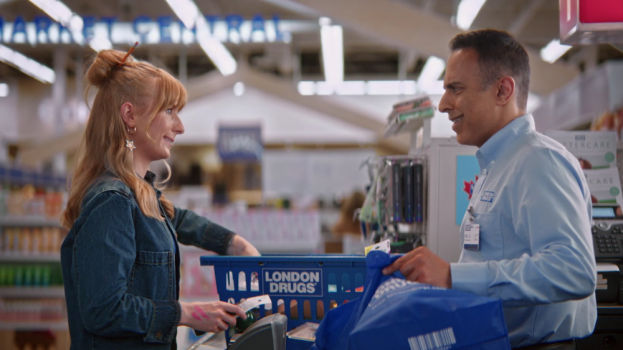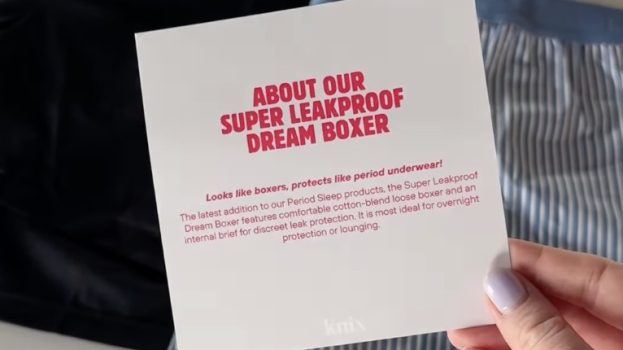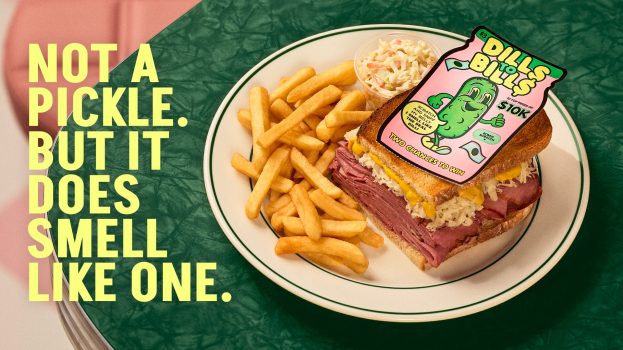
During a time when individuals are told to isolate and physically distance, the sense of feeling alone becomes very real – not just for adults, but children as well.
With typical support systems like school, sports and clubs not being there to help kids get through what is a scary time, agency Broken Heart Love Affair created a campaign for Kids Help Phone that enlisted children to write letters with messages of support for each other, showing them that they still have friends to help them through it. All of the letters also promotes the SMS version of the non-profit’s support line.
The letters are being shared directly to youth through Snapchat, Spotify, TikTok, Facebook, Instagram and YouTube. A more adult-focused portion of the campaign, meant to engage donors, is happening in out-of-home, print, digital and targeted social. The NHLPA also got involved, as hockey players like Mitch Marner, Phillip Danault and Tyler Motte wrote their own letters and shared them on social media.
 .
.
After the first week of COVID-19, the number of children reaching out to Kids Help Phone had increased by 350%, which showed “a very immediate need,” according to Jason Chaney, chief strategy officer at Broken Heart Love Affair.
“We thought a lot about it and figured that kids need to feel a sense that they’re not alone, they’re not isolated in this experience, that they are surrounded by other kids that both feel the same way, but are also looking out for them,” says Chaney. “We also saw a very kind of ‘real solve,’ a way we could really help with advertising. We all just jumped on it immediately, it was really the first thing that brought us together, as a team.” This is the first campaign the agency worked on together when it launched last month.
Shortly after Chaney came up with the insight, it was a friend of Denise Rossetto’s 11-year-old twins that helped grow the strategy: though both could walk to the nearby High Park in Toronto, they couldn’t go or be together.
“So he wanted to leave letters all over High Park for my kids to tell them to not feel as alone,” Rossetto, co-CCO at Broken Heart Love Affair, tells strategy, adding that it was a “profound” way to address the issue Kids Help Phone was dealing with. “Instead of just putting out an ad that says, ‘don’t feel alone,’ that the campaign is kids talking to other kids, and that’s who they miss the most right now.”
Rossetto says two letters in the campaign that resonated with her were one from a little girl who quoted author Lewis Carroll: “Imagination is the only weapon in the war against reality,” and another from a boy, around 12 years old, who talked about already feeling alone because he was in between being a kid and an adult, which was more isolating when combined with living in the era of COVID-19. All of the creative in the campaign uses un-edited versions of the letters, sourced from and written by kids themselves.
In addition to helping kids feel less alone, one of the goals of this campaign is to inspire adults to donate and volunteer, which remain big needs for the organization, especially when it comes to making up for revenue from the cancelled BMO-sponsored “Walk so Kids Can Talk” event.
“Walk So Kids Can Talk” is an annual 5 km walk that has been held on the first Sunday in May since 2002, where thousands of children, adults, families, schools, community groups and corporations across the country join forces to support youth mental health by fundraising for Kids Help Phone. This year, the walk has pivoted to the “Never Dance Alone-a-Thon by BMO,” a virtual version of the event that replaces walking with an endless dance over multiple social media platforms, further amplifying the message that no kid should ever be alone, even when they are at home.
Epitaph handled the media buy for the campaign.























